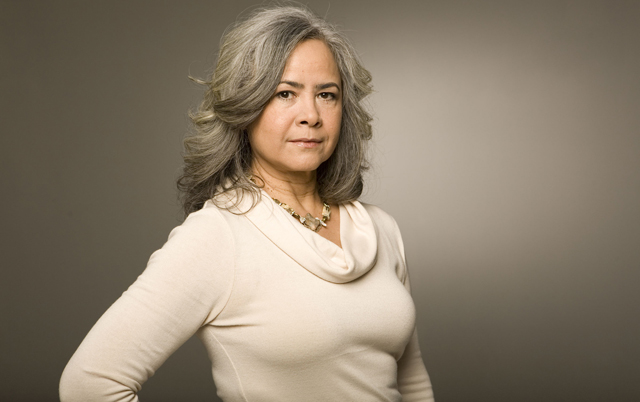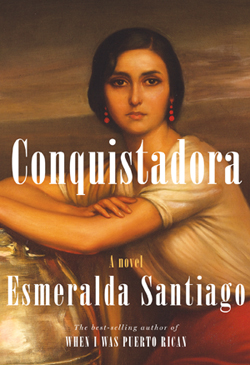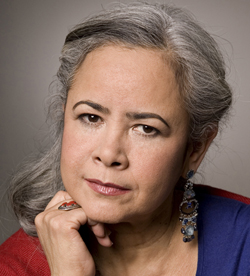Esmeralda Santiago: A Puerto Rican Journey

(Robert Curtis/CANTOMEDIA)
By Percy D. Lujan
Bronx Journal Staff Writer
Acclaimed author Esmeralda Santiago –- best known for her memoirs “When I was Puerto Rican” and “Almost A Woman” –- took a crowd of more than 100 Lehman students and faculty on a journey of her life as a Latina in the United States.
The 63-year-old writer, who gave the 43rd Annual Herbert H. Lehman Memorial Lecture, reminisced about her previous presence at Lehman’s Lovinger Theatre.
She recalled how she was there years ago with a person she did not want to be with and, it was at that moment, she came to that realization. She was glad to be back for what she described as a much happier time in her life.
As a writer, she said, one must remember the things that happened and remind others that there is a different side.
“Art makes it possible for us to express our lives, preoccupations, emotions, our history,” Santiago said.
 After a brief introductory video, Santiago entered the stage surrounded by applause. She began by saying that as a memoir writer, she is constantly thinking about the past.
After a brief introductory video, Santiago entered the stage surrounded by applause. She began by saying that as a memoir writer, she is constantly thinking about the past.
Santiago came to the United States when she was 13 years old. Her mother and father separated because her father was a Puerto Rican nacionalista and did not want anything to do with the United States. She said that her father’s political integrity affected the rest of her life.
When she came to the US, Santiago did not speak any English, apart from pollito chicken. As the eldest child, she had to help her mother communicate, even though she didn’t know any more English.
“This is the way I was thrust into American culture, by becoming a translator for my mother,” Santiago said. This responsibility, she said, empowered her and she dedicated herself to learn the language better than everyone else. “I knew if I didn’t, I was going to drown,” she said.
Santiago learned by reading. In doing so, she noticed that the books she used to escape reality didn’t portray Puerto Ricans. She felt not being portrayed in the art made her feel lonely, even though she was surrounded by other Puerto Ricans in her community.
“If we do not exist in the art of this country,” Santiago said, “we would be invisible in this society.” She said this is why she became a writer. She wanted kids to see themselves in this society. People have approached her, she said, to tell her that they saw their lives reflected in her work.
When writing a book about one’s life, she explained, a person ends up crying. There are events you must write about that are painful, she said, not only to you but to family members. She had to forgive herself and her family in order to write the memoir that included stories about her parents breaking the family apart and her tata (grandmother) being an alcoholic.

(Robert Curtis/CANTOMEDIA)
She told the audience that in order to get out from precarious situations they need to think about what they wanted to do with their lives. They need to write to themselves and not to the world because it is not listening.
During the last part of her lecture, Santiago answered a question from an audience member who asked about the title of her memoir, “When I Was Puerto Rican.” She wanted readers to know she was thinking of something deeper when she picked the title, explaining that, when she returned to Puerto Rico, many Puerto Ricans didn’t view her as Puerto Rican because she was raised in the mainland.
Don’t be afraid to have ambition, she said. “We are taught not to have it,” Santiago said. “People like us, we’re taught not to have ambition.”

To know you and to read about you is very rewarding to me. Your inspiration and ambition gives me a path of guidance.
Thank you,
Martha